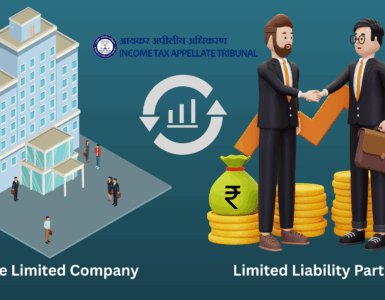LEGAL CORNER – September 2016 – CASE LAW-I :
Facts of the Case:
The Neon Solutions Pvt. Ltd. (Respondent Assesse) had in 2003 subscribed to 2% non-convertible unsecured debentures of Rs.42 crores issued by one of its group companies viz. M/s. Marketing & Brand Solutions (I) Pvt. Ltd.
On 20th May 2004, M/s. Marketing & Brand Solutions (I) Pvt. Ltd. requested a waiver of interest on the debentures as it were facing financial difficulties.
On 31st May 2004, at a meeting of debenture holder’s waiver of interest on the debentures till 31st March 2010 was approved.
Consequent to the above, the Board of Directors of the Respondent Assesse on 8thJune, 2004 also passed a Resolution to waive interest on the debentures of M/s. Marketing & Brand Solutions (I) Pvt. Ltd. up to 31st March 2010 and also duly informed the same to M/s. Marketing & Brand Solutions (I) Pvt Ltd.
In the two assessment years under consideration, the Assessing Officer made the addition of Rs.84 lakhs each being 2% interest on Rs.42 crores of debentures by Assessment Orders passed under Section 143(3) of the Act. This on the ground that waiver of interest for the six year period (2004 to 2010) by board resolution as produced is not believable.
In the appeal, the Commissioner of Income Tax (Appeals) upheld the orders of the Assessing Officer for both the subject assessment years.
Respondent Assesse made further Appeal to the Income Tax Appellate Tribunal and said order impugned by Income Tax Appellate Tribunal.
Appellant made a further appeal to High Court against order impugned by Income Tax Appellate Tribunal.
Ground on which Tribunal Impugned the Order:
- In the mercantile system of accounting an item would be regarded as accrued income only if there is certainty of receiving it and not when it has been waived. Merely because assessee was following a mercantile system of accounting, it could not be held that income had accrued to it.
- As per guidance note on accrual of income on accounting issued by the ICAI, lays down that it is appropriate to recognize revenue in such cases only when it becomes reasonably certain that ultimate collection will be made.
- It is one of the fundamental principles of accounting that the incomes are not taken into account until the point of time that there is a reasonable degree of certainty of its realization.
- The provisions of Section 145(1) are subject to, inter alia, mandate of ASI which also prescribes that ‘Accounting policies under the mercantile method of accounting, and, on peculiar facts of instant case, the assessee was justified in following the policy of not recognizing these interest revenues till the point of time when the uncertainty to realize the revenues vanished.”
The Tribunal further referred that the various resolutions which were passed by the company as well as the communication exchanged between the parties would establish on facts that interest has been waived. So there is no reason to disbelieve the resolution passed by the Respondent Assesse waiving interest.
M/s. Marketing & Brand Solutions (I) Pvt. Ltd. had amalgamated with the Respondent Assesse which would also establish that the debentures issuing company were in serious financial difficulties which was incidentally a group Company of the Respondent.
Decision:
Bombay High Court upheld the decision of Income Tax Appellate Tribunal
Conclusion:
If Interest is waived by Debenture holder it could not consider as Accrued Income it means debenture holder gave up his right to receive interest.




